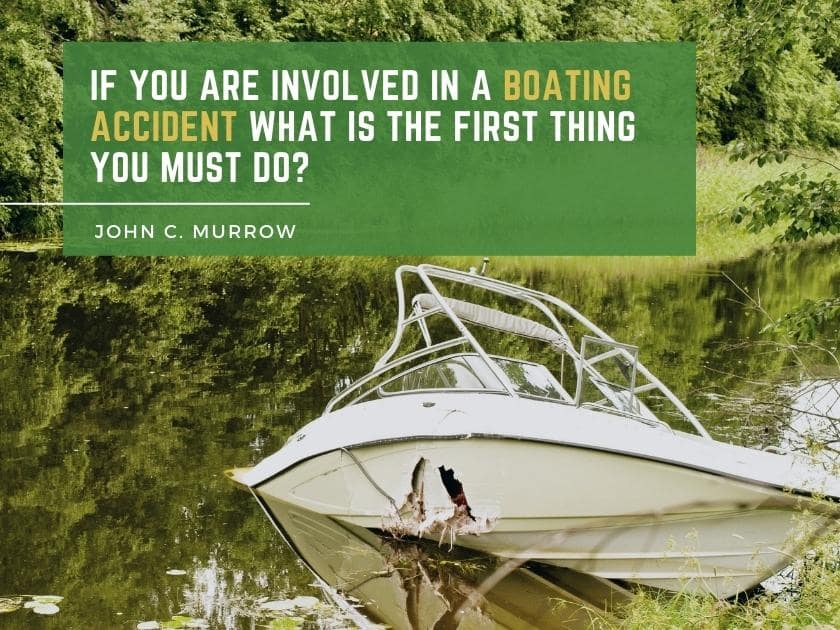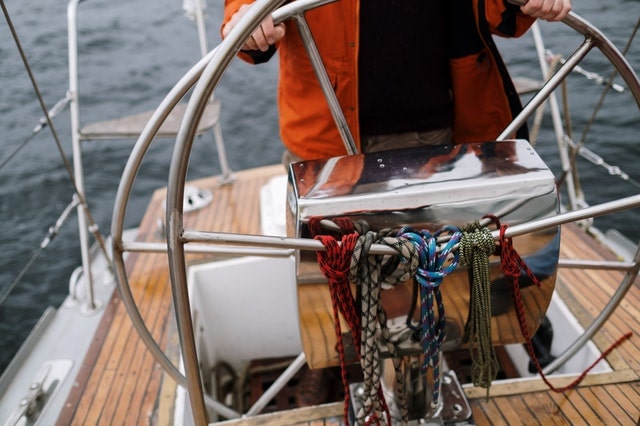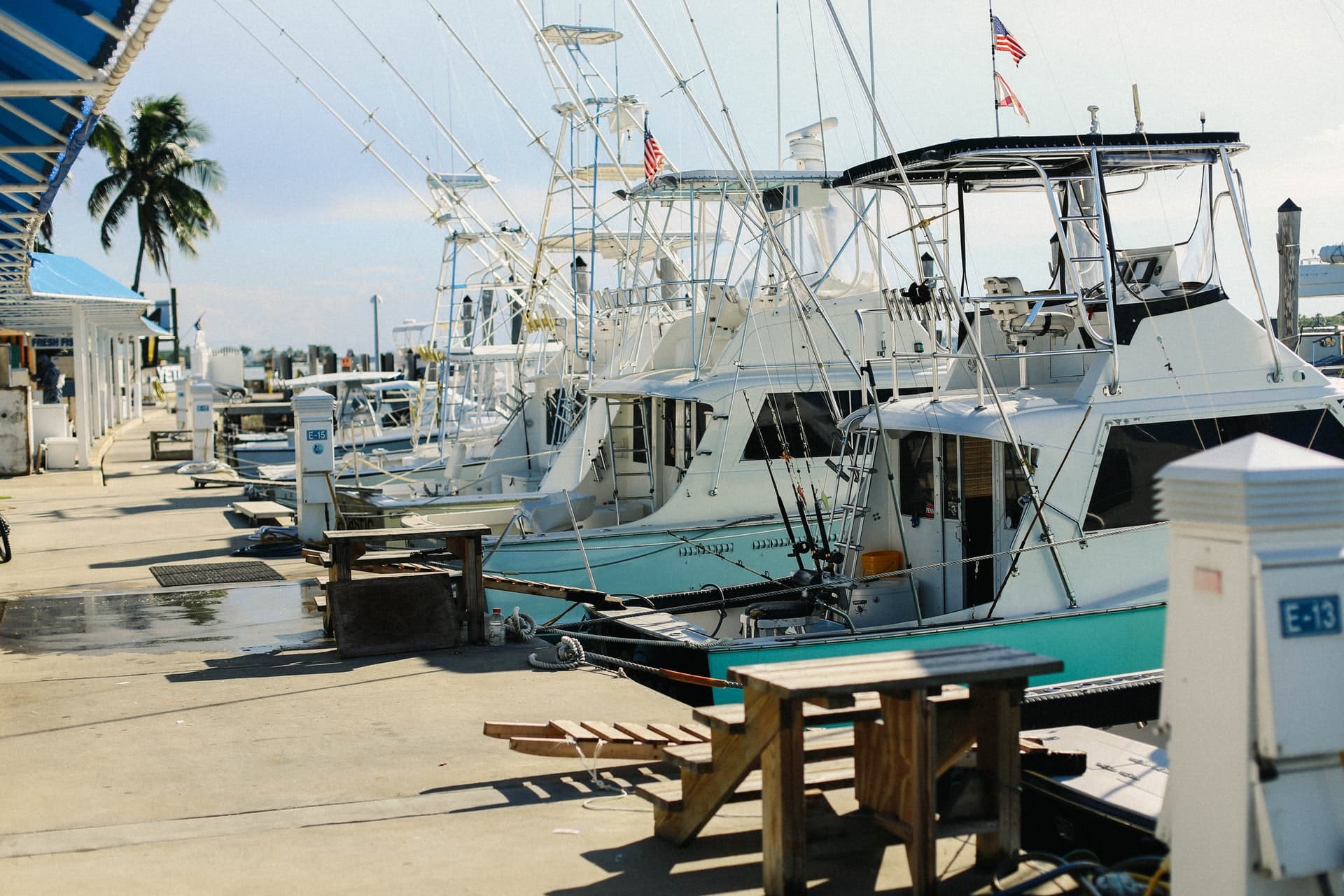Boating is a fun pastime in Florida until there is an accident. Florida typically leads the nation in boating accidents with 836 reported in 2020. According to data compiled by the Coast Guard, boating accidents left 79 people dead, 534 injured, and 5 missing and presumed dead last year.
It's important to know how to handle the situation after a boating collision. Not only will it legally protect you but it could save lives. This guide helps you through the entire process of dealing with the incident and the legal aspects that come afterward.
Immediate Steps
If you are involved in a boating accident what is the first thing you must do?
A crash on the water will involve a moment of fear and then chaos. Safety must be your priority. A boating collision is a dangerous and potentially fatal accident situation.
Stop the Boat
The first thing you do in a boating accident is to stop the boat for safety. Stopping your vessel ensures someone overthrown isn't injured by a prop or the vessel. To prevent drowning, ensure everyone is wearing a life jacket.
Second, you have a responsibility to stay at the site of the accident. Hit and runs are as illegal in boating collisions as they are on the road.
Account for Everyone
Make sure boaters are accounted for. Pull anyone in the water out and check for injuries. Make a quick assessment to tell authorities.
You may need others' help to assist injured boaters while you call authorities. Emergency officials need to be called immediately after accounting for everyone since some may need medical attention.
Having medical personnel check boaters at the scene is important. Some injuries, like concussions, may not be noticeable except by medical personnel.
Call 911
Contact emergency officials and report the crash. They will ask you a series of questions beginning with who is injured. Remain calm and report information as accurately as you can.
In some cases, the 911 operator will direct you on how to care for those with serious medical issues.
The 911 operator will contact medical teams and law enforcement. They likely will keep you on the phone to get continued updates.
It's important to keep your head during this conversation. Talking to a 911 operator can be somewhat troublesome because they first ask you questions you feel are unimportant like your name, your phone number, and your exact location.
However, this is important information to get first should the operator get disconnected.
Move the Boats to a Safe Area
You will need to move the boats to a safe area once everyone is accounted for and immediate medical concerns are addressed. Some accidents occur in heavy boating areas and staying there is dangerous as other boaters are operating their vessels nearby.
Before you move the boats, be sure to take a few pictures of both boats as they are and the area where the collision occurred.
Law Enforcement Agencies That May Be Involved
Boating accidents in Florida involve several law enforcement agencies. Here's a look at some you may be dealing with immediately after a collision.
The Division of Law Enforcement, Florida Fish and Wildlife Conservation Commission
These sworn officers manage the waterways and have jurisdiction over lakes in Florida. They investigate boating accidents and charge boaters with violations.
The Sheriff's Office in the County
Sheriff's deputies may assist should the wreck be in a rural area or extra assistance is needed.
The Local Police Department
Local police may be nearby and asked to assist if the boating accident falls within the city limits.
Any of these officers can make arrests or file charges for incidents stemming from a boating accident in Florida.
What to Do While You're Waiting
You should address any medical issues as best you can while waiting on paramedics and law enforcement.
One thing you shouldn't do is talk about the collision. Don't take on any responsibility and don't apologize for it.
If anyone tries to talk to you about the crash, redirect them by saying we can talk about it later and the injured need attention now.
Documenting the Boat Accident
You may start documenting the boating collision before authorities arrive depending on the extent of the injuries. Remember, the injured come first. However, documentation should start once their needs are met.
Take pictures of damage, injured family members, general shots of people and the area, and your cuts and bruises.
Look for witnesses and ask them to stay to talk to authorities. Be sure to get their names and phone numbers even if they agree to stay. Sometimes people leave.
Police will collect names, addresses, and insurance information of those in the other vessel.
Preserve the Evidence at the Place of the Boat Accident
Evidence is needed should you have to go to court. As alcohol is a leading cause of boating accidents, evidence could be alcohol containers in the other vessel or other things that contributed to the collision.
Don't remove any of these items but make sure others don't either. Take pictures as quickly as you can to document evidence.
Tell authorities about it and let them collect it.
Be sure to get the names of officers documenting the situation and ask when a report will be ready.
Protecting Your Rights and Getting Compensated
Following the correct protocols will ensure your rights are protected and will help you gain the compensation needed for injuries and damages.
Notify Your Insurer About the Boat Accident
Your insurer will ask you some questions, require you to send a copy of the report, and advise you on what to do next. They may send out an adjuster to look at your boat.
Call a Boating Accident Lawyer in Tampa
Even though the accident may look cut and dry, boating accidents can become complicated. Call a Tampa boat accident attorney to ensure your rights are protected and to handle any legal aspects of the case.
Don't Cash a Settlement Check
The other party's insurance company may try to settle with you without going through your personal injury lawyer in Tampa or insurance company. That should be a red flag. Don't accept or cash a settlement check until you've spoken to your boat accident lawyer.
Build a Boat Accident Legal Case
It is essential to maintain good documentation of everything as your case proceeds. That includes your record of events leading to the collision, information about all operators involved, all medical bills, estimates for damage, and how many days you or your passengers couldn't work. Keep these documents in organized files so your boating accident attorney can review them.
Request medical expenses of any medical treatment required.
It's important to keep a good record of any medical expenses for yourself, your family, and any passengers on your boat. Your Tampa Bay personal injury lawyer or the insurance company will document those in the other boat.
Request lost income caused by the negligence or error of another party.
Keep track of how much income you, your spouse, or other passengers of your boat lose while healing from injuries. This can also be compensated.
Request compensation for the pain and suffering associated with the boat accident.
Pain and suffering are somewhat abstract things, so you will need to review what that means with your attorney.
Request property damage compensation.
Property damage is damage to your boat, or your boat pier, jet skies, water skies, anything that was damaged in the accident. Your Tampa boating accident lawyer can help you recover these damages.
You may have questions regarding a boating accident. Contact John C. Murrow, PA to guide you through the legal process in seeking a claim.



